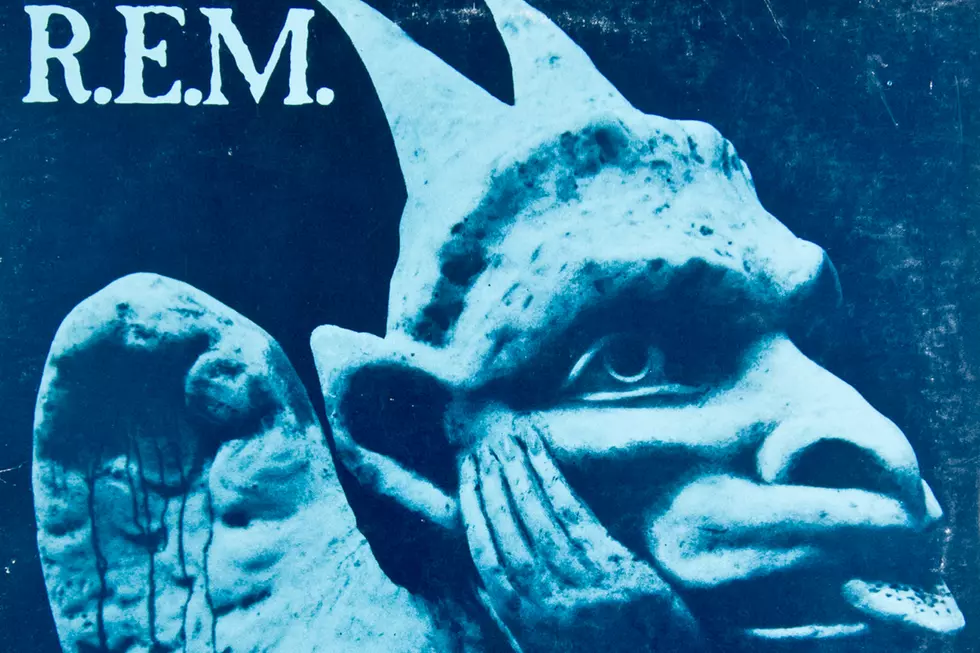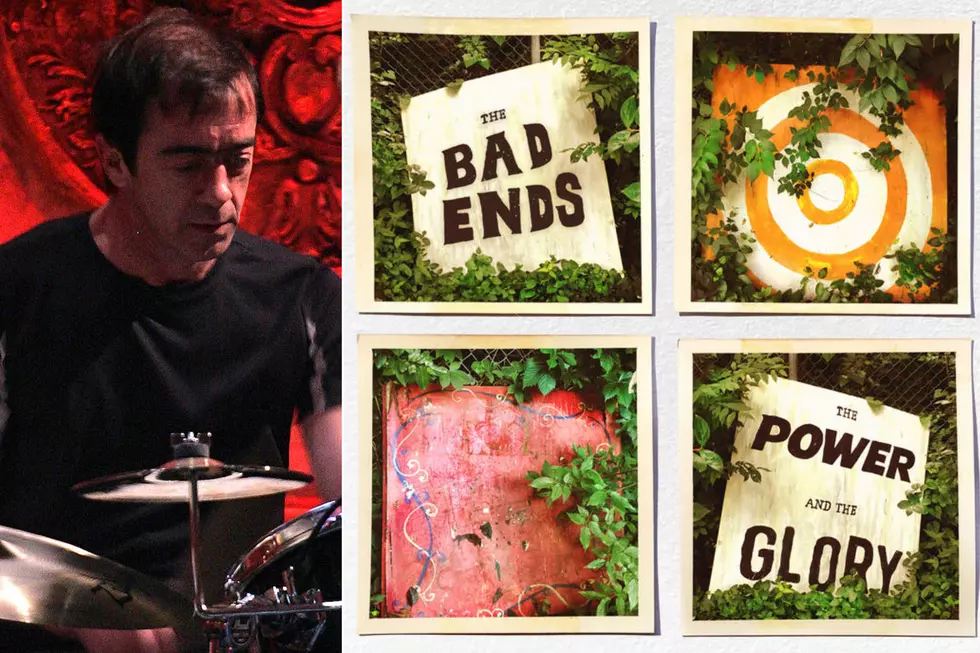
40 Years Ago: R.E.M. Makes a Mysterious Debut With ‘Chronic Town’
R.E.M.'s debut EP, Chronic Town, landed in stores on Aug. 24, 1982. It's safe to say music was never the same, although such historic hyperbole felt very far away upon the release of the five-song record.
That's because Chronic Town feels beamed in from another planet — a planet shrouded in murky atmospheres, Southern mysticism and post-punk eclecticism. There's a faint psychedelic vibe running throughout, notably shading the jangly, Peter Buck riffs coiling through "Wolves, Lower" and the wistful grooves of "Gardening at Night," while the taut tempos of "Carnival of Sorts (Box Cars)" and "1,000,000" give the songs vibrating velocity. The nearly six-minute "Stumble" feels like deconstructed dance music, as repetitive guitar embellishments do battle with Bill Berry's forceful percussion bursts.
Beneath the surface lurks layers of sounds and effects; these add barely perceptible, but mysterious, texture. Yet equally cryptic are Michael Stipe's lyrics and vocals. Phrases leap from the music here and there, giving off the air of a faded watercolor more than a crisp portrait. This is particularly effective in "Wolves, Lower," which features quizzical notes-to-self ("Suspicion yourself, suspicion yourself, don't get caught") and interesting arrangements. The verse is a call-and-response: a questioning chorus sings the phrase "House in order," while Stipe follows with yearning, wordless crooning.
Watch R.E.M.'s 'Wolves, Lower' Video
"Gardening at Night," a song dating back to summer 1980 that is allegedly inspired by Buck seeing a man gardening while wearing dress clothes, is also a puzzle, as Stipe employs a vocal technique that's gorgeous yet indistinct. And then there's "Stumble," which begins with a brief clip of Stipe laughing, saying "Teeth!" and then chomping his choppers. Chronic Town is compulsively listenable because listeners are compelled to try to figure out its secrets.
As per usual with R.E.M. in those early days, sessions for Chronic Town were quick and efficient. The band wasted no time getting back into the studio after the July 1981 release of its debut 7-inch, the Mitch Easter-produced "Radio Free Europe." According to the R.E.M. Timeline, the group headed to Easter's Drive-In Studio during the first week of October. "The instruments were recorded on Friday, vocals on Saturday, and it was mixed on Sunday," Buck recalled to Trouser Press in 1983. "We didn't have the money to take any longer."
On Oct. 3, 1981, the band tore through close to eight songs, some of which appeared on Chronic Town ("1,000,000," "Gardening at Night," "Carnival of Sorts (Box Cars)" and "Stumble"), and others which would later surface on Murmur ("Shaking Through") or as early B-sides ("Ages of You," "White Tornado"). R.E.M. also cut an abstract, collage-like song, later dubbed "Jazz Lips" or "This Is Jazz (Blow Nose)," that featured Stipe reading a 1959 magazine article above the cacophonous fray.
The EP's lead-off track, "Wolves, Lower," emerged after this initial session. The song was recorded twice in 1982, with R.E.M. tracking a fast version (heard below) in January, along with the take on "Carnival of Sorts (Box Cars)" that made the EP and then re-cut a slower version in June.
Listen to R.E.M.'s Faster Version of 'Wolves, Lower'
Looking back in 2007 with writer Fred Mills, Easter had clarity on the Chronic Town sessions. "By now, I was a bit more comfortable with them so I threw in suggestions involving tape loops, backwards sounds, etc. and they loved it all. The sense that we were doing something good was really energizing. We even had the good sense and confidence to go back and re-do 'Wolves, Lower' at something less than the speed of light.
"Most of my sessions were so low-budget and rationalized according to the 'Rules of Punk Rock' that taking the time to reconsider something was really posh and unusual!" he adds. "It struck me that the band had actually gotten better — everybody sounded bigger and better and clearer, somehow."
Still, around the release of 1983's Murmur, Buck described a slightly more freewheeling experience to Trouser Press, saying the band made Chronic Town "for our own pleasure, as a learning process. We used lots of backwards guitars and weird sound ideas. We tried anything we'd ever wanted to try, so a lot of things on there are too busy. We didn't edit ourselves the way we did on [Murmur]."
Part of that experimentation had to do with Easter and his love of Kraftwerk. In R.E.M.: Fiction: An Alternative Biography, David Buckley wrote that Easter was "always ready to try something more mechanoid in the studio. Part and parcel of this were to use rudimentary musical concrete techniques — any means to distort the fabric of time, or to layer slabs of 'found' elements."
Among the experiments: The bridge of "Wolves, Lower" contained both backward elements and a tape loop, giving it a back-masked, disorienting sound. Stipe also recorded some of his vocals outside, giving his vocals an intriguing (if somewhat intangible) ambience.
Although Chronic Town came together fast, the EP didn't see the light of day until August 1982, owing to the fact that R.E.M. was working out terms of a contract with I.R.S. Records. This deal wasn't necessarily on the radar when recording began — Chronic Town was actually meant to be released on a new indie label called Dasht Hopes, run by an Athens transplant named David Healey. However, life intervened, and R.E.M. also did demo sessions for RCA Records with producer Kurt Munkacsi in February 1982 before signing with I.R.S. in May. (Healey, however, is dubbed as "ex-producer" in the Chronic Town credits.)
By the time Chronic Town was released, "it wasn't very representative of us," Buck told Trouser Press in 1983. Still, critics were kind to the EP: Chronic Town placed second on the EP list of the Village Voice's Pazz & Jop critics poll in 1982.
Top 100 '80s Rock Albums
More From Ultimate Classic Rock










